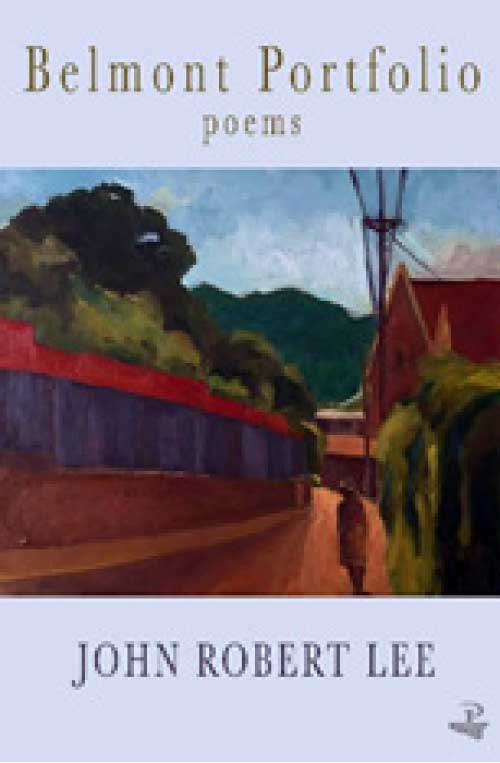
PEEPAL Tree Press in Leeds, UK, announces the forthcoming publication of Belmont Portfolio: poems by Saint Lucian poet John Robert Lee, in November. This is the fourth collection by Lee with Peepal. Peepal Tree is the leading publisher of Caribbean, Black British and Asian writers. Its writers have garnered several prestigious awards. Other Saint Lucian writers published by Peepal Tree include Garth St. Omer, Vladimir Lucien, Kendel Hippolyte, Jane King, Adrian Augier, Earl Long.
Of Lee’s new book, the publisher says “This poetry offers an empathetic sensitivity to human frailty, celebrations of the beauty of enduring love, prophetic anger in calling out injustices and a sense of the sacredness of the natural world and the terrible insults we offer it. It’s a magnificent and varied collection in which different kinds of voices – all JRL – mesh together: the observational, the sacramental, the elegiac, the prophetic and the personal.
John Robert Lee’s Christian faith is always present in his perceptions of experience and in the shaping of his art, and even those who don’t share his faith should be grateful for this because he gives us a poetry of an empathetic sensitivity to human frailty, celebrations of the beauty of enduring love, prophetic anger in calling out injustices and a sense of the sacredness of the natural world and the terrible insults we offer it. It’s a magnificent and varied collection in which different kinds of voices – all JRL – mesh together: the observational, the sacramental, the elegiac, the prophetic and the personal. It’s a collection in which four major suites of poems give the whole an organic unity, which is not to say that the individual poems that fall outside the suites don’t make their fine contribution. The ‘Belmont Portfolio’, dedicated to Trinidadian novelist Earl Lovelace, records a time spent on his own in the unfamiliar streets of Belmont in Trinidad in poems that catch the sense of being on the edge of adventure, that see the numinous behind the ordinary.
The ‘Office Hours’ suite, with its gracious nods to W. H. Auden, is both an engagement with the hours of divine office and the Bible readings that go with it, and a very human series of reflections on that most universal of experiences – how we live through our diurnal cycles. There is the rousing, prophetic, Old Testament righteous anger of the ‘Watchman’ sequence, which reflects on the hell of living in Babylon and the gap between the deceits of ‘liberal democracies’ and the ghastly realities of their global crimes. In the last sequence, ‘What Remains to be Said’ the poet emerges to the front of the stage and speaks directly and confidentially to the reader. It is a sequence that gathers together what must be treasured as sustenance through ‘this Purgatorio’ of our times, reflections on how one can speak in an era where you are “collared in faith in agnostic seasons”, where the frequency of the deaths of those with whom you have shared the struggle is a “haunting against my faith in the Tree of Life” – and a wondering, slightly tongue-in-cheek: “approaching mid-seventies, what do I know?” “
In 1993 Nobel laureate Derek Walcott had said of his younger contemporary: “Robert Lee has been a scrupulous poet; that’s the biggest virtue he has, and it’s not a common virtue in poets, to be scrupulous and modest in the best sense, not to over-extend the range of the truth of his emotions, not to go for the grandiose. He is a Christian poet obviously. You don’t get in the poetry anything that is, in sense, preachy or self-advertising in terms of its morality. He is a fine poet.”
Of the new Belmont Portfolio, Vladimir Lucien has written,
“In Belmont Portfolio, John Robert Lee has managed to refine a poetic voice as unassuming and plain-speaking as the places he chronicles, a voice that knows that as much as the universe spirals away from us into impressive, widening gyres of increasing abstraction, taking with it the people and places we felt we knew, it also coils towards us, sometimes lovingly, sometimes in wrath, but ultimately always bringing redemption. Yet it is also about an in-built and triumphant resistance to total fragmentation which we see in the poet’s frustrations, hurt, disappointment, joy, hope and celebration— all part of a yearning for connection which he shares with the universe herself. The poet, like the universe, assumes his poetic duty to keep things close even as they must (also) recede. This is the message that he, the chronicler of the infinite in small places and in honest, quotidian experience comes to bring us…no big “project” just: “maybe epiphany, maybe/not what was or will be/ but what is/ right there in your eye.”
Lee has contributed articles, columns and poems to the Voice of Saint Lucia from the late sixties and still does so.





![Attendees at the UHC logo and website launch [Photo credit: GOSL]](https://thevoiceslu.com/wp-content/uploads/2026/02/Attendees-at-the-UHC-logo-and-website-launch-380x250.jpg)






![Remnants of an alleged drug boat blown up in a lethal strike by the U.S. military last week surfaced off Canouan on Saturday [Photo credit : St Vincent Times]](https://thevoiceslu.com/wp-content/uploads/2026/02/Remnants-of-an-alleged-drug-boat-blown-up-380x250.jpg)
